'I broke 22 bones and lost a year's memory'
- Published
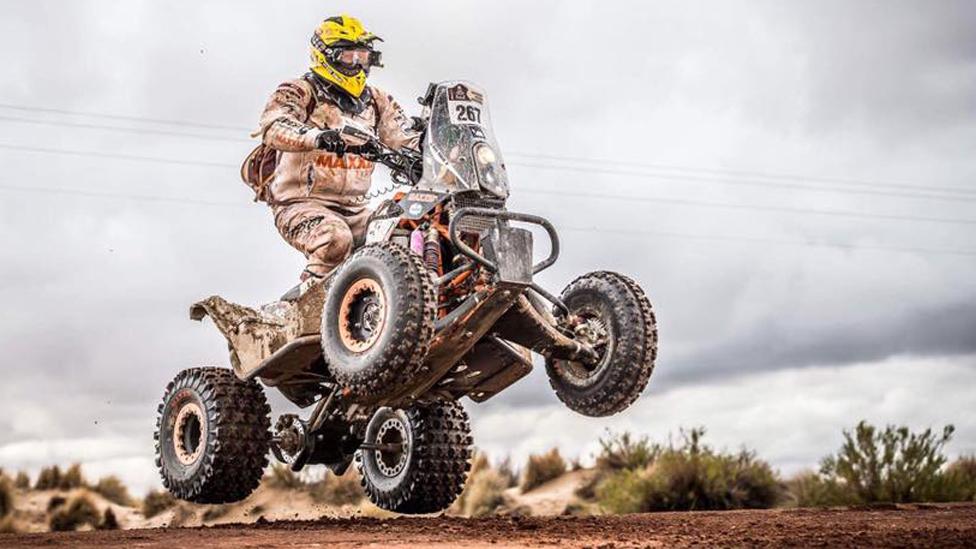
Kees Koolen is the only person to have completed the annual Dakar Rally in all four main categories - motorbike, quad, car and truck
The BBC's weekly The Boss series profiles different business leaders from around the world. This week we speak to serial Dutch entrepreneur Kees Koolen, whose latest company is battery manufacturer Lithium Werks.
After Kees Koolen and his motorbike somersaulted down a rocky hillside in Western Sahara in 2006, the local ambulance crew said there was nothing they could do to save his life.
"They said I would die for sure," says Mr Koolen, looking back on the crash. "So they didn't want to do anything."
At the time the Dutch businessman was 41, and had taken time off from his job as chief operating officer at travel firm Booking.com to compete in a long-distance motorcycle race in north Africa.
He was nearing the end of a day's riding when, overtaking a car and another motorbike, he didn't notice the sharp drop to the side of the road.
Plunging down, he broke 22 bones, and suffered serious head trauma after his helmet cracked open.
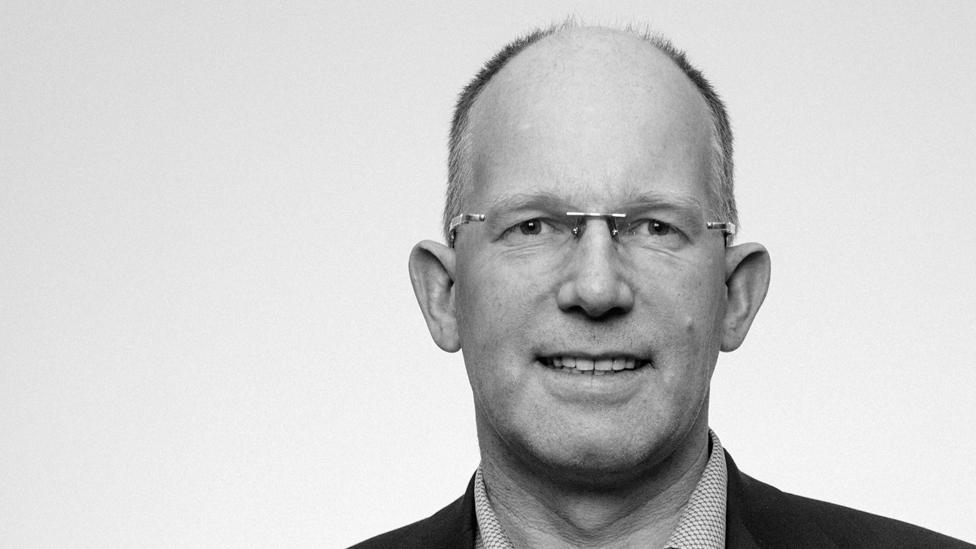
He was brought up in a remote part of the Netherlands where they didn't speak Dutch
Thankfully for Mr Koolen, he had some friends with him, and they forced the ambulance crew to at least try to save his life. "My friends got into a big fight with the ambulance men," he says.
Mr Koolen was ultimately flown back to the Netherlands by private plane for emergency surgery, and a very slow recovery.
"Not only had I broken 22 bones, but I lost my memory," says the 53-year-old. "I still don't remember anything from the next year of my life."
In hospital for six months following the crash, Mr Koolen was eventually able to walk again and return to Booking.com.
One of the company's earliest investors, he went on to be its chief executive from 2008 to 2011.

More The Boss features:

Then from 2012 he advised another company he had invested in - US taxi-hailing firm Uber - on its global rollout, while also looking after his investments in scores of other tech firms.
And while most of us would never have gone motorcycle racing again after a crash like he had, Mr Koolen decided to up the ante and start competing on his bike in the annual Dakar Rally, which can be as long as 9,000km (6,000 miles) and mostly on unpaved roads.
"When I'm working, I do 20-hour days every day," he says. "I can't stop, so taking three weeks off every year to compete in the Dakar forces me to switch off from work.
"And then I always make the best business decisions when I return to work because I'm fresh."
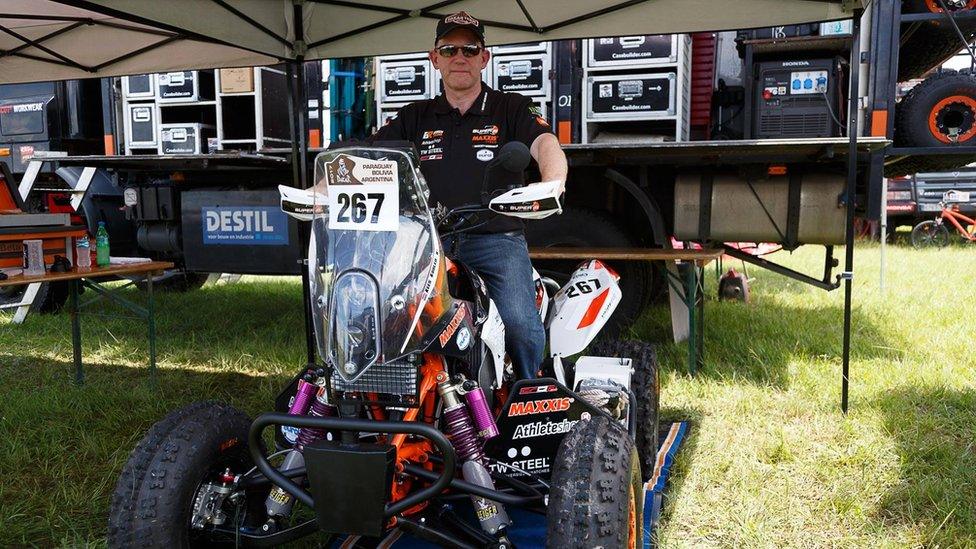
Mr Koolen takes three weeks off work every year to compete in the Dakar Rally
Today Mr Koolen's main focus is his lithium-ion battery business Lithium Werks, which is based in the city of Hengelo, in the eastern Netherlands.
Although the company was established only at the start of this year, after it bought existing US firm Valence and fellow Dutch business Super B, Lithium Werks already has two factories up and running in China, and another on the way.
The rechargeable batteries are aimed at both electric vehicles - everything from taxis, to ships, forklift trucks and lorries - and for power storage at solar panel installations and wind farms.
With global demand for such batteries predicted to grow by as much as 16 times current levels by 2030,, external as the world turns away from burning fossil fuels, Mr Koolen wants Lithium Werks to be one of the biggest suppliers.
"Turnover this year will be $80m (£63m), and I predict close to $1bn next year, and then growing further from there," he says. "Demand for batteries is going to be huge going forward."
Engineer to Ironman
Born and raised on a small dairy farm in the south of Netherlands, beside the Belgian border, Mr Koolen says he didn't leave his village until he was 11.
"I also never spoke Dutch until I went to secondary school and had to learn it," he says. Until then he had only spoken the Brabantian dialect.
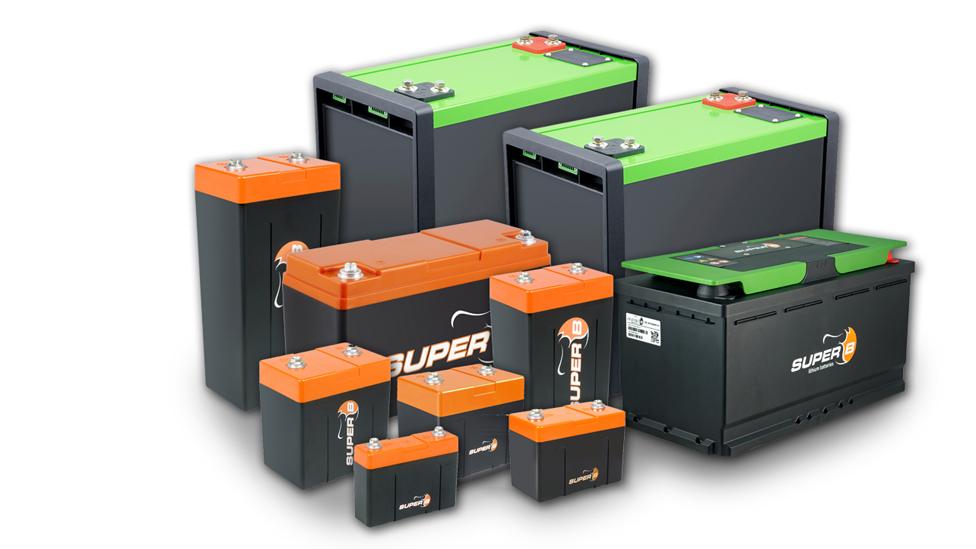
Lithium Werks was formed earlier this year after it bought two existing battery producers
After finishing school Mr Koolen studied mechanical engineering at a university in the city of Eindhoven. It was around this time that he started to compete in Ironman triathlons - a 2.4-mile (3.9km) swim, followed by a 112-mile (180km) bike ride, and then running a marathon.
However, after his knee was injured in a car accident when a drunk driver ploughed into his car, he switched to motor sports.
Mr Koolen then studied for an MBA (master of business administration qualification), before starting a successful career as a consultant, advising a host of companies that he also started to invest in. One of these was Booking.com, which was formed in the Netherlands in 1997, and last year had revenues of $12.7bn.
Mr Koolen's investments over the years have made him a multimillionaire, with a Dutch newspaper estimating in 2013 that he had a personal fortune of €115m ($130m; £101m)., external
Lithium Werks' batteries are being fitted to Amsterdam's canal tour boats
But is he right to be so bullish about Lithium Werks and the global demand for lithium-ion batteries?
"Lithium-ion batteries are absolutely key in the move to electric vehicles, but they also allow us to realise the full potential of solar and wind power through cheap and easy energy storage," says Richard Anderson from technology think tank RethinkX.
"So there's no question demand for these batteries will rocket, but of course that doesn't mean that everyone producing lithium-ion batteries will be successful.
"This will be an incredibly competitive marketplace where a number of big, well-established companies such as Tesla and Panasonic already operate."
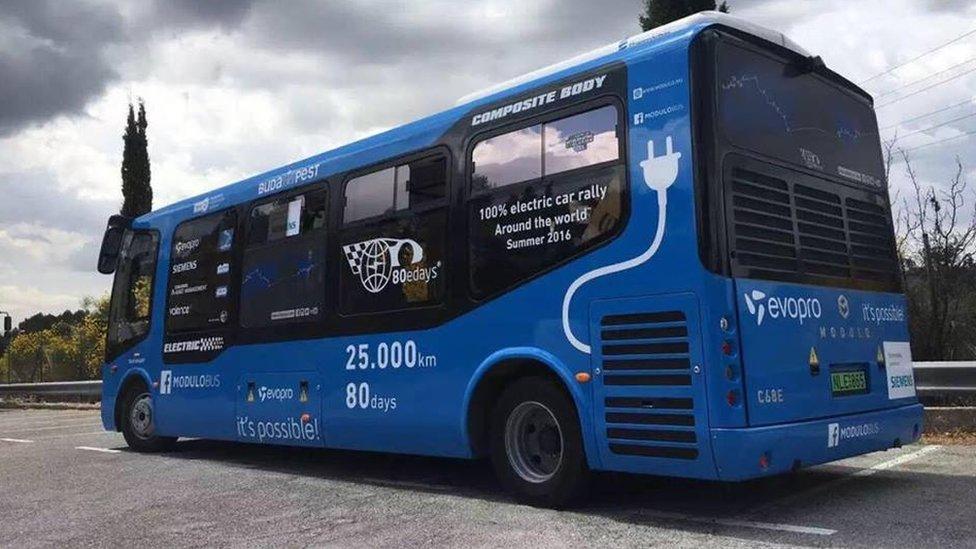
The company's batteries are also fitted to several bus fleets across Europe
No matter how busy Mr Koolen is with Lithium Werks his enthusiasm for competing in motor sport rally events is undimmed.
He has now entered the Dakar Rally nine times, and is the only person to have completed the race in all four main categories - motorcycle, quad bike, car and truck.
The risk of injury doesn't bother him, he says, even remembering the time in 2013 when he broke his back while training on his quad bike.
"I was about to go over a jump and the throttle got stuck," he says. "I fell from the bike and broke four vertebrae.
"I believe in fate though. Everyone dies when it is their time."